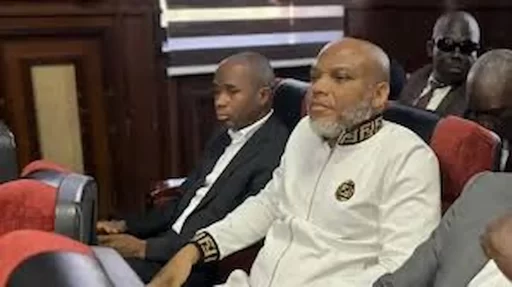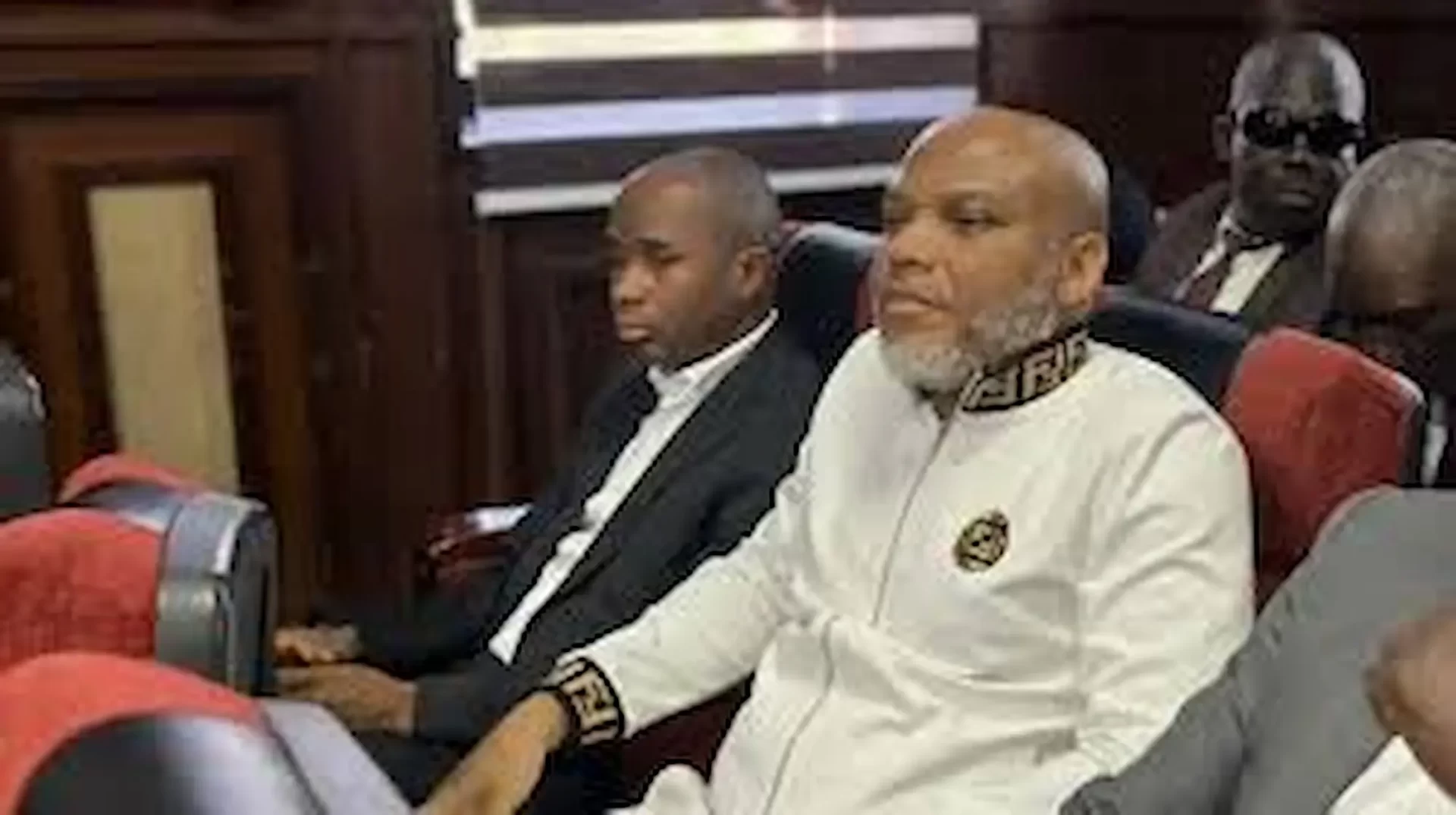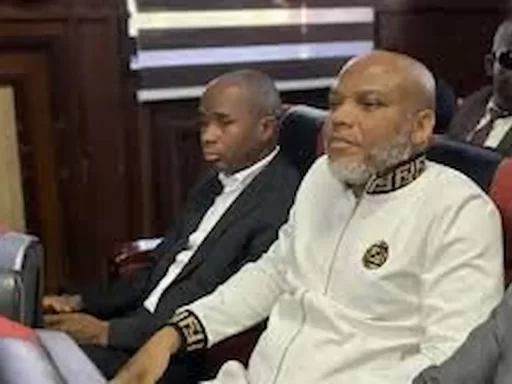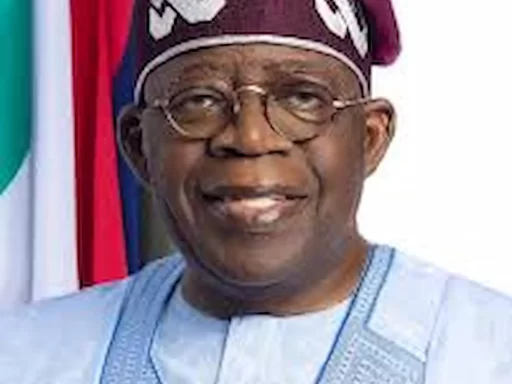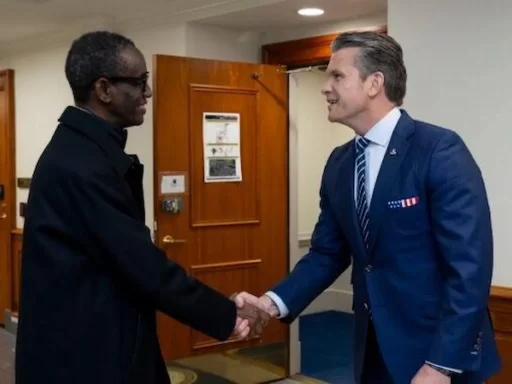Nnamdi Kanu: The Verdict That Reshapes His Long Trial
By Naija Enquirer Staff
The Federal High Court in Abuja has delivered one of the most consequential judgments in Nigeria’s recent history, convicting Nnamdi Kanu, leader of the proscribed Indigenous People of Biafra (IPOB), on all seven terrorism charges brought against him by the Department of State Services.
Justice James Omotosho held that the prosecution proved its case beyond reasonable doubt, noting that Kanu chose not to defend himself, instead resting entirely on the prosecution’s evidence — a decision the court interpreted as leaving no alternative but to convict.
The judge ruled that Kanu’s campaign for Biafra, by its approach, promoted violence and fell squarely within the definition of terrorism under Nigerian law.
Life Sentence, Not Death Penalty
After the conviction, Federal Government counsel, Adegboyega Awomolo, SAN, urged the court to issue the death penalty. Justice Omotosho rejected the request, sentencing Kanu as follows:
- Life imprisonment on Counts One, Four, Five and Six
- 20 years imprisonment on Count Three
- 5 years imprisonment on Count Seven
All sentences will run concurrently. The judge stated that Kanu’s broadcasts encouraged threats, incitement, and directives that triggered violent acts in the South-East.
Defence Rejects the Judgment
Kanu’s lawyer, Aloy Ejimakor, condemned the ruling as “a travesty of justice” and vowed to appeal.
“Today is the only day I have seen a man convicted for what he said, not what he did,” he said, arguing that the alleged broadcasts were not tied to specific violent acts and that self-determination should not be criminalised.
He described the judgment as “overboard, cruel and unusual,” expressing confidence Kanu would be cleared on appeal.
Prosecution Hails a ‘Message to All Nigerians’
Awomolo praised the ruling, saying it reinforces the principle that “no one is bigger than Nigeria.” He described the judgment as a warning to anyone who threatens national security.
A Trial Shaped by History and Controversy
Kanu’s legal troubles began nearly a decade ago. First arrested in 2015, he fled the country while on bail after a military raid on his residence. His 2021 arrest in Kenya — described by his lawyers as “extraordinary rendition” — fuelled legal and human rights debates.
Prosecutors expanded charges from treason to terrorism, alleging his broadcasts triggered attacks on security personnel and public infrastructure. The defence has repeatedly argued that the trial should have been dismissed.
Political Resolution: A Possibility?
Legal analysts say the conviction may open the door to a political solution. Lawyer Raymond Nkanabe suggested a future presidential pardon may be possible — but only if Kanu renounces separatist agitation.
He warned that an appeal may not succeed unless fundamental legal errors are established.
Voices of Concern
Critics have questioned parts of the judgment, including counts linked to violence during the EndSARS protests in Lagos. Some argue that the charges are politically motivated and misrepresent public events.
For many in the South-East, the trial is not just about Kanu — but about identity, federal trust, and perceived marginalisation.
What Comes Next
The case will move to the Court of Appeal and possibly the Supreme Court. Meanwhile, political pressure is expected to intensify as supporters call for dialogue.
The conviction has not ended the controversy. Rather, it has reopened long-running questions about justice, dissent, and nationhood — questions Nigeria must confront long after the courtroom lights fade.


